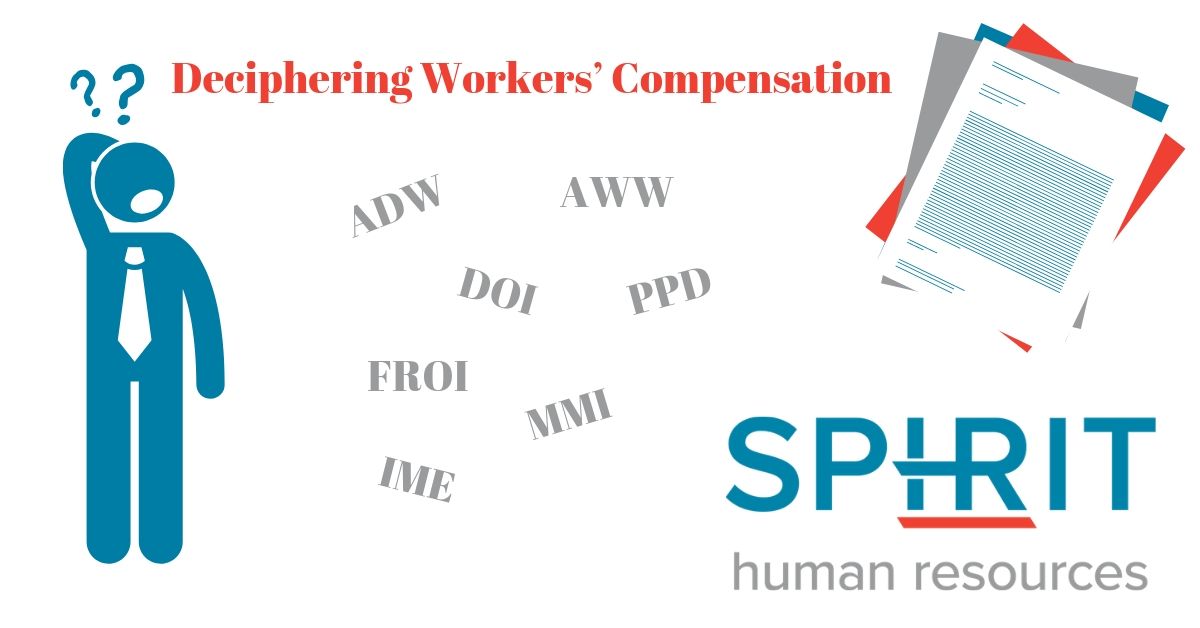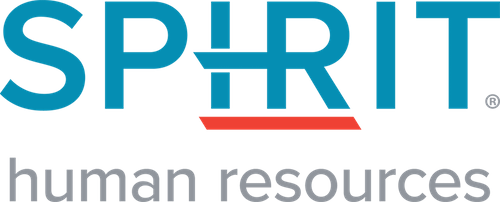Deciphering Workers’ Compensation

Frequently used terms are commonly abbreviated and can easily make simple communications look like secret languages.
Alphabet Soup
Here are a few common abbreviations that will have you deciphering claims communications like Nicholas Cage in National Treasure in no time.
ADW –Average Daily Wage is a computation of an injured employee’s average daily earnings.
AWW –Average Weekly Wage is a computation of an injured employee’s average weekly earnings. AWW or ADW are used to determine entitlement to lost wage benefits.
DOI – Date of Injury
FD – Full Duty
FROI –First Report of Injury
IE – Injured Employee
IME –Independent Medical Examination is the assessment of an employee’s condition by an independent physician.
IR –Impairment Rating is a medical assessment of a workers’ physical condition represented as a percentage.
LD – Light Duty
MMI –Maximum Medical Improvement means a worker’s condition has improved as much as it’s going to with treatment.
PPD –Permanent Partial Disability means a worker has a permanent impairment, but can still work in some capacity.
PTD –Permanent Total Disability means a worker is permanently and totally disabled from work following an injury.
PT –Physical Therapy is the treatment of physical injury using therapeutic exercise.
RTW –Return to Work
TPD –Temporary Partial Disability means an injured employee is able to perform light duty or modified work while recovering.
TTD –Temporary Total Disability means an injured employee is unable to work while recovering.
Now the next time your employee hands you a doctor’s note that says “MMI with IME IR 0%. RTW FD” you can say with confidence, “Get to work!”
If you’d rather leave the deciphering to someone else, give Spirit HR a call and find out what other employment mysteries our services can solve.
Latest Blogs from Spirit HR
Your Quick Guide to E-Verify
The federal E-Verify program has been around in some form since 1996, and it’s only getting bigger. With Florida joining the program earlier this year, around half of all states now require E-Verify participation in some way. Enrolling in the program isn’t difficult,...
3 Reasons to Outsource Your HR
Navigating the complexities of HR management can be a daunting task for businesses, especially when streamlining operations and optimizing costs are crucial for success. Outsourcing your HR functions can be a game-changer, providing the breathing room you need as a...
3 Steps to Improve Health and Safety Compliance in Your Workplace
Health and safety are two terms that can seem tedious concerning the workplace, but ignoring them and the standards they entail could result in injury, illness or even death. Prevention and preparation are integral to a safe, happy and compliant organization. Here are...
